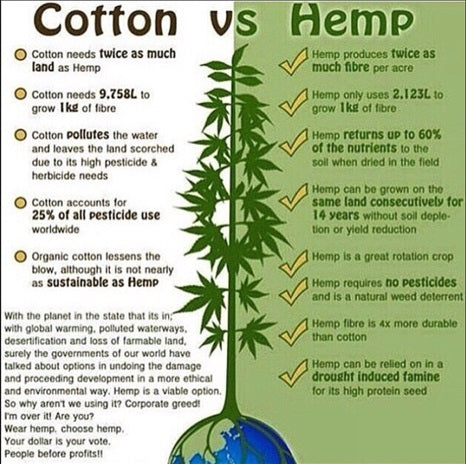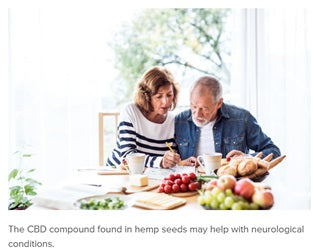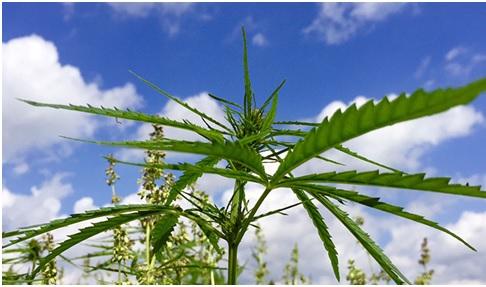Few months ago someone asked me what I’m up to these days. “I’m into Hemp cultivation”, that’s what I replied. It didn’t take fraction of seconds for the next question, “What is hemp?” Now, the answer to this simple question is not so simple to answer. However, in this article, I will guide you to explore the beautiful world of Hemp in a simple way.
Explaining things in my country (India), in layman terms is interesting. Sometimes you end up with shock and awe, sometimes with complete denial or ignorance. But we are not here for shock & awe and complete denial or ignorance.
In short, Hemp is a strain of the Cannabis sativa plant and its products. This same species of plant also called Marijuana.
Now the word “cannabis/marijuana” immediately sounds an alarm to our brain. Cannabis? Ganja/Marijuana/Reefer? Drugs? Schedule I?
Is hemp the same thing as marijuana?
Yes and no.
Hemp and marijuana are both names for the cannabis sativa plant, but people usually use these terms to talk about two different varieties of the plant.
There are many different varieties of the cannabis plant. Hemp — also called industrial hemp — refers to the non-psychoactive (less than 1% THC) varieties of Cannabis sativa L. Both hemp and marijuana come from the same cannabis species, but are genetically distinct and are further distinguished by use, chemical makeup, and cultivation methods.Yes and no. Hemp and marijuana are both names for the cannabis sativa plant, but people usually use these terms to talk about two different varieties of the plant.
Is Hemp illegal?
Cannabis sativa is usually illegal, but there are exceptions to that rule for products made from hemp that do not contain THC, like paper and shampoo. Many countries are now legalizing cultivation of hemp for its environmental friendly, health, food, shelter etc.
What Can Hemp Do?
Hemp can be grown as a renewable source for raw materials that can be incorporated into thousands of products. Its seeds and flowers are used in health foods, organic body care, and other pharmaceuticals. The fibers and stalks are used in hemp clothing, construction materials, paper, biofuel, plastic composites, and more.

Last year, the Hemp Industries Association (HIA) estimated the total retail value of all hemp products sold in the U.S. at $620 million. Sadly, all of the raw hemp materials were imported from other countries.

Hemp is an attractive rotation crop for farmers. As it grows, hemp breathes in CO2, detoxifies the soil, and prevents soil erosion. What’s left after harvest breaks down into the soil, providing valuable nutrients.
Hemp requires much less water to grow — and no pesticides — so it is much more environmentally friendly than traditional crops.

What Can’t Hemp Do?

Hemp can do a lot,but it can’t get you “high.” Because hemp varieties contain virtually zero tetrahydrocannabinol (THC), your body processes it faster than you can smoke it. Trying to use hemp to put you on cloud nine will only put you in bed with a migraine!
Benefits
Many people consider hemp seeds to be a superfood. The seeds have a rich nutritional profile and provide a range of health benefits. Although hemp seeds come from the Cannabis sativa plant, they do not produce a mind-altering effect.

These small, brown seeds are rich in protein, fiber, and healthful fatty acids, including omega-3s and omega-6s. They have antioxidant effects and may reduce symptoms of numerous ailments, improving the health of the heart,skin, and joints.
Nutritional benefits of hemp seeds
These seeds are full of nutritious compounds, including:
Protein
 Hemp seeds contain almost as much protein as soybeans. In every 30 grams (g) of seeds, or about a tablespoon, there are 9.46 g of protein. These seeds are a complete source of protein, meaning that they provide all nine essential amino acids.
Hemp seeds contain almost as much protein as soybeans. In every 30 grams (g) of seeds, or about a tablespoon, there are 9.46 g of protein. These seeds are a complete source of protein, meaning that they provide all nine essential amino acids.
Amino acids are the building blocks for all proteins. The body cannot produce nine of these acids, so a person must absorb them through the diet. Relatively few plant-based foods are complete sources of protein, making hemp seeds a valuable addition to a vegetarian or vegan diet.Hemp seeds are especially rich in an amino acid called arginine, which has benefits for heart health.
Unsaturated Fat
The health benefits of polyunsaturated fats, especially omega-3 fatty acids, are becoming increasingly well known. Hemp seeds are a great source of essential fatty acids, such as alpha-linolenic acid (ALA), which is an omega-3.

The body cannot produce essential fatty acids, and the body must absorb them from the diet. They are crucial for long-term health. The ratio of omega-3s to omega-6s is also important. In general, people tend to eat too many omega-6s and too few omega-3s, but adding hemp seeds to the diet may help to promote a balance.

According to results of a 2015 animal study, incorporating hemp seeds and hemp seed oil to hens’ diet led to eggs with increased levels of omega-3s in the yolks and a more healthful omega-3 to omega-6 ratio. Also, hemp seeds are low in saturated fats and contain no trans fats.
Fibers
Much of the fiber in a hemp seed lies in its outer hull, or shell. If possible, purchase hemp seeds with the hulls intact.

However, even without the shells, hemp seeds are a god source pf fiber, with three tablespoons containing approximately 1.2 g of fiber. Consuming enough fiber every day can:
- Reduce the appetite
- Help with weight management
- Work to stabilize blood sugar levels
- Promote the health of the gut
Minerals and Vitamins
Hemp seeds contain an impressive array of vitamins and minerals and are especially rich in:
- Vitamin E
- Magnesium
- Phosphorous
- Potassium

They are also good source of iron,zinc and B vitamins, including:
- Niacin
- Riboflavin
- Thiamine
- Vitamin B-6
- Folate
Health benefits of hemp seeds
Alongside the nutritional benefits, some research suggests that hemp seeds have a wide range of positive health effects. They may:
Protect the Brain
A study published in the journal Food Chemistry found that hemp seed extract has antioxidant effects in lab tests. These effects may result from the seeds’ cannabidiol (CBD) content. Results of a review from 2018 suggest that CBD and other compounds in the seeds may have neuroprotective, anti-inflammatory, effects and may also help to regulate the immune system.

The review suggests that, because of these potential properties, CBD may help with neurological conditions, including:
- Parkinson’s disease
- Alzheimer’s disease
- Multiple sclerosis
- Neuropathic pain
- Childhood seizure disorder
Boost heart health
The medical community believes that omega-3 fatty acids improve the health of the heart and reduce the risk of issues such as arrhythmia and heart disease. Hemp seeds contain high levels of omega-3s and a healthful ratio of omega-3 to omega-6 fatty acids.

The seeds also contain high levels of arginine, an amino acid that turns into nitric oxide. Nitric oxide is essential for artery and vein dilation, and it helps keep blood vessel walls smooth and elastic. Lowering blood pressure, eating a healthful diet, and participating in varied forms of exercise may help to decrease the risk of heart failure.
Reduce Inflammation
The amount of omega-3s in hemp seeds and the seeds’ healthful omega-3 to omega-6 ratio can together help to reduce inflammation. In addition, hemp seeds are a rich source of gamma linolenic acid (GLA), a polyunsaturated fatty acid which may also have anti-inflammatory effects. Some studies on animals suggest that GLA can act as a potent anti-inflammatory. However, recent studies in humans suggest that the acid is not always effective.

A review in The European Journal of Pharmacology states that humans process GLA in a very complicated way, which may explain why the studies in humans produce more varied results than those on animals. When looking at these studies, it is important to note that researchers usually use high concentrations of hemp seed extracts and that eating the seeds may produce less dramatic effects.
Reducing inflammation may help manage the symptoms of chronic diseases, such as:
- Metabolicsyndrome
- Type 2diabetes
- Arthritis
- Heart disease
- Non-alcohol-related fatty liver disease
Improves skin conditions
Atopic dermatitis (AD) and acne can both result from chronic inflammation. The anti-inflammatory compounds in hemp seeds may help. Among other possible dietary causes, acne may be linked to a deficiency in omega-3s. The high omega-3 content in hemp seeds may help to manage and reduce acne symptoms.

A 2018 review explored the effects of dietary changes on skin diseases. While the researchers found evidence that eating more omega-3s may improve symptoms of acne, determining the extent of the effects will require more research. It is also noted that prebiotics and plant fibers may help to manage symptoms of AD. Hemp seeds are a rich source of plant fiber.






